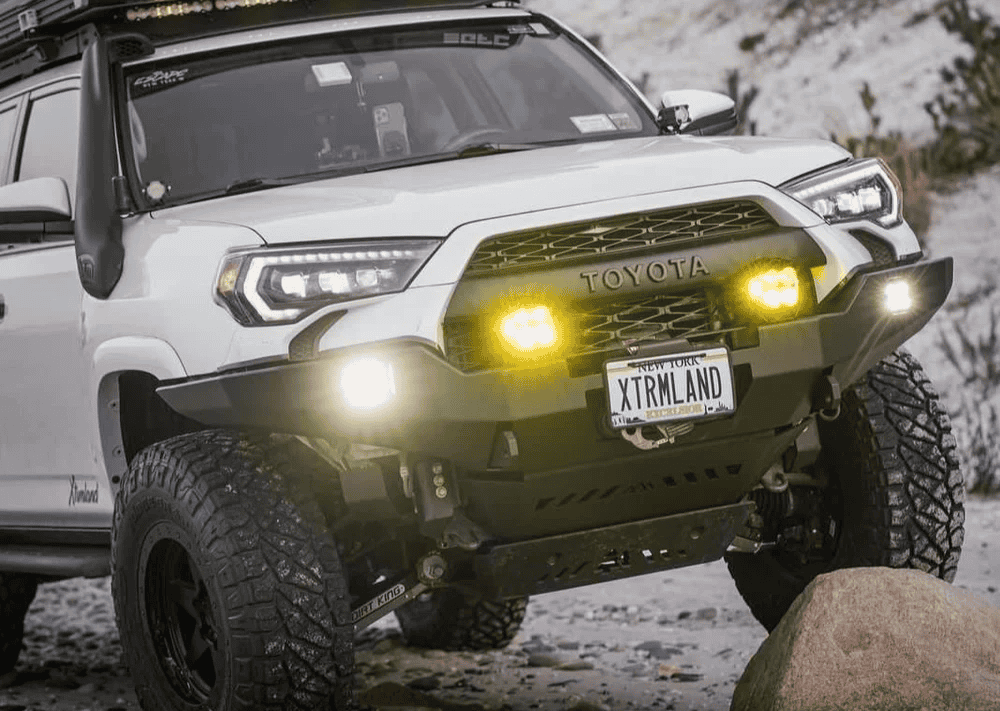Overland Vehicles

Off road camping vehicles all aim for the same outcome: safe access to remote campsites while carrying people, water, fuel, and essentials. The core decision starts with platform type. A van based setup keeps living space inside the body, which protects gear and simplifies climate control. A truck camper splits living space from the cab, which can improve departure angle and serviceability. Trailers add flexibility but increase length and articulation demands on tight tracks.
Drivetrain matters because traction is your first line of defense against loss of momentum. Many modern vans offer all wheel drive with smart traction control that reacts quickly on mixed surfaces. An awd camper van performs best with a locking or limited slip rear differential and well matched tires. Traditional 4x4 systems with low range shine on steep climbs, rock steps, and slow technical sections, but they come with extra weight and complexity.
Ground clearance and geometry decide where you can point the nose. Measure under body clearance at the lowest point, then consider approach, breakover, and departure angles. Skid protection for the front subframe, fuel tank, and critical lines buys margin when terrain surprises you. Even a mild suspension lift paired with correctly sized all terrain tires can transform stability and clearance without compromising road comfort.
AWD systems route power where grip exists, which helps on snow, rain soaked clay, and sandy two tracks. An awd rv van with aggressive tread and a traction aid in the rear makes the most of that system. Airing down tires increases contact patch and ride quality on corrugations, but bring a compressor to return to safe street pressures.
Tires do more work than any other mod. Choose load rated all terrains in a size that clears at full compression and steering lock. Reinforced sidewalls resist trail cuts. Match shocks and springs to the actual build weight to maintain correct ride height, travel, and damping.
Remote camps demand independence. A balanced electrical system starts with a lithium battery bank sized for refrigeration, lighting, fans, induction cooking, and device charging. Solar adds day to day resilience, while alternator charging covers cloudy stretches and driving days. A shore input is useful at trailheads or staging areas. Keep wiring clean, fused, and accessible.
Water planning is dictated by climate and crew size. Separate fresh and gray tanks simplify hygiene and keep weight low in the chassis. A compact filtration system extends range when you can draw from clean sources. For cooking, induction is efficient with the right battery, while propane offers good energy density if properly vented and monitored. Ventilation is essential for moisture control; roof fans and screened windows maintain airflow during shoulder seasons.
Insulation choices balance thermal comfort with condensation management. Focus on thermal breaks, sound deadening, and a vapor aware wall system. In an awd camper van, low profile cabinetry and a center aisle keep weight near the floor and allow easy passage during foul weather. Secure storage for recovery gear, medical supplies, and tools prevents movement on rough roads.
Modern travelers value reliable navigation and communication. A quality DC system should support GPS devices, radios, and satellite connectivity for weather, maps, and check ins. Mount antennas clear of roof clutter, and route cables away from high voltage lines to avoid interference.
Good airflow fights moisture and maintains comfort when cooking inside. Combine intake and exhaust paths for cross ventilation. In winter conditions, a sealed combustion heater provides dry heat and reduces window condensation.
Capability starts behind the wheel. Learn to read terrain, spot for your partner, and apply gentle throttle to maintain traction without wheelspin. Momentum is a tool, not a crutch. Walk obstacles when visibility is limited and confirm exit lines before committing. Keep vehicle weight below rated limits and distribute heavy items between the axles.
Recovery basics belong on every rig. A quality jack, rated recovery points, kinetic rope, soft shackles, traction boards, and a tire repair kit cover most scenarios. Practice using each item in a safe environment. Navigation redundancy matters too; carry downloaded maps and a paper backup. In wildfire or storm prone regions, monitor conditions and maintain fuel reserves.
Route planning is about matching terrain to your platform. An awd rv van with moderate clearance is perfect for graded forest roads, gravel passes, and light two track. Deep ruts, large ledges, and tight switchbacks may favor shorter wheelbases or low range 4x4 trucks. Knowing when to turn around protects the vehicle and the landscape.
Weigh the rig after each major change to confirm axle loads. Choose compact, multi use tools and store them where they are accessible from outside the living space. Inspect recovery points and hardware before every trip.
Set conservative daily mileage on dirt. Corrugations and maps can be misleading. Give yourself time to air down, explore side roads, and stop early when terrain asks for daylight and patience.
If you are ready to translate this checklist into a dependable vehicle, explore our trail focused services. See proven approaches on our overland rigs page, then dive deeper into a tailored custom overland upfit that matches your routes, payload, and comfort goals. Want to understand how we work and why travelers trust us with complex builds? Visit why choose OZK Customs and see our build philosophy in action.
Whether your target is a nimble awd camper van for mixed weather weekends or a long range platform set up for extended dirt travel, our team plans around real weight, real terrain, and real use. Tell us where you want to camp, and we will map the gear, power, suspension, and interior that take you there comfortably.
Ready to build a trail proven van or truck that fits your routes and gear? Tell us how you travel, and OZK Customs will blueprint a capable, comfortable rig that performs from highway to washboard. Start your build plan now.
ADDRESS:
6159 E Huntsville Rd, Fayetteville, AR 72701
PHONE:
(479) 326-9200
EMAIL:
info@ozkvans.com